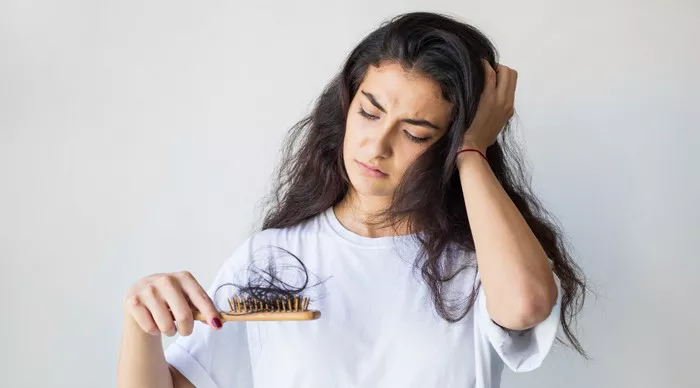Hair loss can be a distressing experience for many, and it is not uncommon for individuals to notice changes in their hair after stopping birth control. Birth control pills can significantly influence hormonal balance, which in turn can affect hair growth cycles. Understanding the relationship between birth control and hair loss, and knowing the steps to encourage hair regrowth, can help manage expectations and promote healthy hair.
The Relationship Between Birth Control and Hair Loss
Hormonal Influence on Hair Growth
Hair growth is closely linked to hormonal balance. Androgens, a group of hormones that include testosterone, play a significant role in the hair growth cycle. Birth control pills typically contain synthetic hormones like estrogen and progestin, which help regulate the menstrual cycle and prevent pregnancy. These synthetic hormones can also affect androgen levels, either by reducing them or by altering their activity.
How Birth Control Affects Hair
Certain types of birth control pills, particularly those with higher androgenic activity, can potentially trigger hair loss in individuals who are sensitive to hormonal changes. This type of hair loss, known as androgenetic alopecia or female pattern hair loss, can occur while on birth control or after discontinuing it.
Telogen Effluvium
Another common cause of hair loss related to birth control is telogen effluvium, a temporary condition where a significant number of hair follicles enter the resting phase (telogen) of the hair growth cycle. This can happen due to the hormonal shift that occurs when starting or stopping birth control pills. Telogen effluvium typically results in diffuse hair shedding and can be alarming, but it is usually temporary.
Factors Influencing Hair Regrowth After Birth Control
Individual Hormonal Balance
Each person’s hormonal balance is unique, and how one’s body responds to the cessation of birth control can vary. Some may experience minimal hair loss and quick regrowth, while others may find it takes longer for their hair to return to its previous state.
Duration of Birth Control Use
The length of time an individual has been on birth control can also impact hair regrowth. Long-term use of birth control pills may result in more pronounced hormonal adjustments upon discontinuation, potentially affecting the hair growth cycle more significantly.
Underlying Health Conditions
Pre-existing conditions such as polycystic ovary syndrome (PCOS) or thyroid disorders can complicate hair regrowth after stopping birth control. These conditions can independently affect hormone levels and hair health, making it essential to manage them in conjunction with any post-birth control hair loss.
Encouraging Hair Regrowth After Birth Control
Patience and Monitoring
Hair regrowth is a gradual process. It can take several months for hair to return to its previous thickness and density. Regular monitoring and documenting hair growth can help track progress and identify any persistent issues that may require medical attention.
See Also: How Long Does Frontal Fibrosing Alopecia Last?
Maintaining a Healthy Diet
Nutrition plays a crucial role in hair health. A balanced diet rich in vitamins and minerals, particularly those known to support hair growth, such as biotin, zinc, and vitamins A, C, and E, can promote healthy hair regrowth.
Reducing Stress
Stress can exacerbate hair loss and hinder regrowth. Incorporating stress-reducing activities such as yoga, meditation, and regular exercise can support overall health and improve hair growth outcomes.
Hair Care Practices
Adopting gentle hair care practices can minimize further damage and support regrowth. This includes using mild shampoos, avoiding excessive heat styling, and refraining from tight hairstyles that can stress the hair shaft.
Medical Interventions
In some cases, medical treatments may be necessary to stimulate hair regrowth. Consulting with a dermatologist or a trichologist can provide access to treatments such as minoxidil (Rogaine), which is FDA-approved for promoting hair growth.
Exploring Alternative Contraceptive Options
Non-Hormonal Methods
For those concerned about hair loss, non-hormonal contraceptive options such as copper IUDs, condoms, or fertility awareness methods may be preferable. These methods do not influence hormonal balance and, therefore, are less likely to affect hair growth cycles.
Low-Androgenic Birth Control Pills
If hormonal contraception is preferred, selecting a birth control pill with low androgenic activity can reduce the risk of hair loss. Pills containing drospirenone, norgestimate, or desogestrel are often recommended for individuals with concerns about hair health.
Conclusion
Hair loss after stopping birth control can be a challenging experience, but it is often temporary and manageable. Understanding the hormonal dynamics at play and taking proactive steps to support hair health can facilitate the regrowth process. With patience, proper nutrition, stress management, and appropriate hair care practices, most individuals can expect to see their hair return to its normal state over time. For those with persistent or severe hair loss, seeking professional medical advice can provide additional strategies and treatments to promote hair regrowth.


